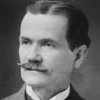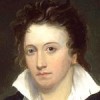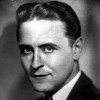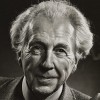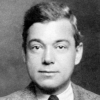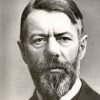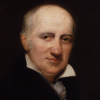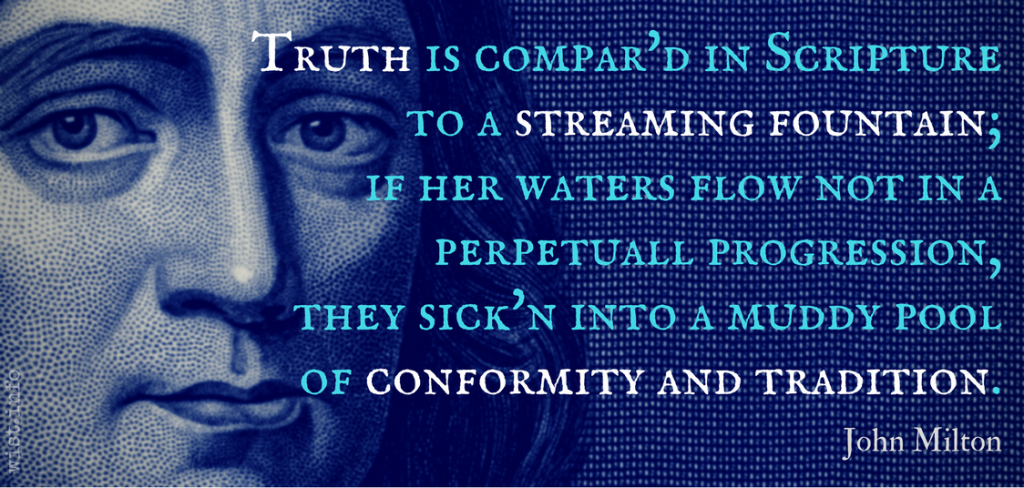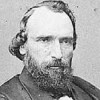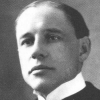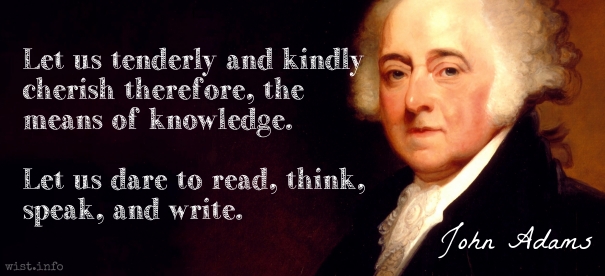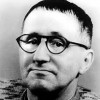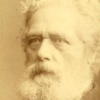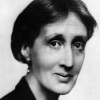Pedantry crams our heads with learned lumber, and takes out our brains to make room for it.
Charles Caleb "C. C." Colton (1780-1832) English cleric, writer, aphorist
Lacon: Or, Many Things in Few Words, Vol. 2, § 20 (1822)
(Source)
Quotations about:
thought
Note not all quotations have been tagged, so Search may find additional quotes on this topic.
ORSINA: Better counsel comes overnight.
[Besserer Rat kommt über Nacht.]Gotthold Lessing (1729-1781) German playwright, philosopher, dramaturg, writer
Emilia Galotti, Act 4, sc. 3 (1772)
It is unclear if this is a traditional German saying, or was coined by Lessing. There are parallels in other languages (as well as German), but I did not find a German reference in these words that predates this play.
(Source (German))
Better counsel comes with the night.
[Source (1842)]
Morning brings better counsel.
[tr. Lewes/Taylor (1890)]
Better counsel often comes by night.
[tr. Gode-von Aesch (1959?)]
Everything has been said, and we have come too late, now that men have been living and thinking for seven thousand years and more.
[Tout est dit, et l’on vient trop tard depuis plus de sept mille ans qu’il y a des hommes qui pensent.]Jean de La Bruyère (1645-1696) French essayist, moralist
The Characters [Les Caractères], ch. 1 “Of Works of the Mind [Des Ouvrages de l’Esprit],” § 1 (1.1) (1688) [tr. Stewart (1970)]
(Source)
Opening line of the book. La Bruyère's timeline is that of medieval scholars who calculated, from the Bible, that the age of the world to be only several thousand years old.
(Source (French)). Alternate translations:
We are come too late, after above seven thousand years that there have been men, and men have thought, to say any thing which has not been said already.
[Bullord ed. (1696)]
After above seven thousand Years, that there have been Men, and Men have thought, we come too late to say any thing which has not been said already.
[Curll ed. (1713)]
We are come too late, by several thousand Years, to say any thing new in Morality.
[Browne ed. (1752)]
After above seven thousand years, during which there have been men who have thought, we come too late to say anything that has not been said already.
[tr. Van Laun (1885)]
A thought is often original, though you have uttered it a hundred times. It has come to you over a new route, by a new and express train of associations.
Only if a child feels right can he think right.
Haim Ginott (1922-1973) Israeli-American school teacher, child psychologist, psychotherapist [b. Haim Ginzburg]
Teacher and Child, ch. 4 “Congruent Communication” (1972)
(Source)
It is the head that governs men. A kind heart is of no use in a chess game.
[On gouverne les hommes avec la tête. On ne joue pas aux échecs avec un bon cœur.]
Nicolas Chamfort (1741-1794) French writer, epigrammist (b. Nicolas-Sébastien Roch)
Products of Perfected Civilization [Produits de la Civilisation Perfectionée], Part 1 “Maxims and Thoughts [Maximes et Pensées],” ch. 8, ¶ 522 (1795) [tr. Merwin (1969)]
(Source)
(Source (French)). Alternate translations:
People are governed with the head; kindness of heart is little use in chess.
[tr. Mathers (1926)]
Men are governed using the head. A kind heart is useless in a chess game.
[tr. Dusinberre (1992)]
A person governs men with his head. One does not play chess with goodness of heart.
[tr. Siniscalchi (1994), ¶ 521]
Learning without thought ends in a blur. Thought without learning will soon totter.
[學而不思則罔、思而不學則殆。]Confucius (c. 551- c. 479 BC) Chinese philosopher, sage, politician [孔夫子 (Kǒng Fūzǐ, K'ung Fu-tzu, K'ung Fu Tse), 孔子 (Kǒngzǐ, Chungni), 孔丘 (Kǒng Qiū, K'ung Ch'iu)]
The Analects [論語, 论语, Lúnyǔ], Book 2, verse 15 (2.15) (6th C. BC – AD 3rd C.) [tr. Ware (1950)]
(Source)
Many (but not all) translators suggest that learning/study here is not general academics, but examining and maintaining the ancient traditions.
(Source (Chinese)). Alternate translations:
Learning without thought is labour lost; thought without learning is perilous.
[tr. Legge (1861)]
Learning with [sic] thought is a snare; thought without learning is a danger.
[tr. Jennings (1895)]
Study without thinking is labour lost. Thinking without study is perilous.
[tr. Ku Hung-Ming (1898)]
Learning without thought is useless. Thought without learning is dangerous.
[tr. Soothill (1910)]
Education without meditation is useless. Meditation without education is risky.
[tr. Soothill (1910), alternate]
Research without thought is a mere net and entanglement: thought without gathering data, a peril.
[tr. Pound (1933)]
He who learns but does not think, is lost. He who thinks but does not learn is in great danger.
[tr. Waley (1938)]
If one learns from others but does not think, one will be bewildered. If, on the other hand, one thinks but does not learn from others, one will be in peril.
[tr. Lau (1979)]
If one studies but does not think, one is caught in a trap. If one thinks but does not study, one is in peril.
[tr. Dawson (1993)]
To study without thinking is futile. To think without studying is dangerous.
[tr. Leys (1997)]
Learning without thinking is fruitless; thinking without learning is perplexing.
[tr. Huang (1997); additional translations.]
Studying but not thinking, it is confused; Thinking but not studying, it is dangerous.
[tr. Cai/Yu (1998)]
Learning without due reflection leads to perplexity; reflection without learning leads to perilous circumstances.
[tr. Ames/Rosemont (1998)]
If he studies and does not reflect, he will be rigid. If he reflects but does not study, he will be shaky.
[tr. Brooks/Brooks (1998)]
To learn and never think -- that's delusion. But to think and never learn -- that is perilous indeed!
[tr. Hinton (1998)]
If you learn without thinking about what you have learned, you will be lost. If you think without learning, however, you will fall into danger.
[tr. Slingerland (2003)]
Learning without thought is pointless. Thought without learning is dangerous.
[tr. Watson (2007)]
If you learn but do not think, you will be dazed. If you think but do not learn, you will be in danger.
[tr. Chin (2014)]
Learning from books without critical thinking results in confusion. Thinking vacuously without learning from books is perilous.
[tr. Li (2020)]
We smile at the women who are eagerly following the fashions in dress whilst we are as eagerly following the fashions in thought.
Austin O'Malley (1858-1932) American ophthalmologist, professor of literature, aphorist
Keystones of Thought (1914)
(Source)
“Horace or Boileau have said such a thing before you.” — “I take your word for it, but I have used it as my own. May I not have the same correct thought after them, as others may have after me?”
[Horace ou Despréaux l’a dit avant vous. — Je le crois sur votre parole; mais je l’ai dit comme mien. Ne puis-je pas penser après eux une chose vraie, et que d’autres encore penseront après moi?]
Jean de La Bruyère (1645-1696) French essayist, moralist
The Characters [Les Caractères], ch. 1 “Of Works of the Mind [Des Ouvrages de l’Esprit],” § 69 (1.69) (1688) [tr. Van Laun (1885)]
(Source)
(Source (French)). Alternate translations:
Horace and Boileau have said such a thing before you. I take your word for't, but I said it as my own, and may not I think a just thought after them, as others may do the same after me?
[Bullord ed. (1696)]
HORACE or BOILEAU have said such a thing before you: I take your word for it, but I said it as my own, and may not I think a just Thought after them, as others may do the same after me?
[Curll ed. (1713)]
Horace or Boileau have said such a thing before you. I take your Word, for it, but I said it as my own, and may not I have the same just Thought after them, as others may have it after me?
[Browne ed. (1752)]
Horace or Boileau said it before you. -- I take your word for that; but I said it as my own. Cannot I, after them, have a true thought, and one which others will think after me?
[tr. Stewart (1970), § 68]
Everything beautiful and noble is the result of reason and calculation. Crime, of which the human animal has learned the taste in his mother’s womb, is natural by origin. Virtue, on the other hand, is artificial, supernatural, since at all times and in all places gods and prophets have been needed to teach it to animalized humanity, man being powerless to discover it by himself. Evil happens without effort, naturally, fatally; Good is always the product of some art.
[Tout ce qui est beau et noble est le résultat de la raison et du calcul. Le crime, dont l’animal humain a puisé le goût dans le ventre de sa mère, est originellement naturel. La vertu, au contraire, est artificielle, surnaturelle, puisqu’il a fallu, dans tous les temps et chez toutes les nations, des dieux et des prophètes pour l’enseigner à l’humanité animalisée, et que l’homme, seul, eût été impuissant à la découvrir. Le mal se fait sans effort, naturellement, par fatalité ; le bien est toujours le produit d’un art.]
Charles Baudelaire (1821-1867) French poet, essayist, art critic
“Le Peintre de la Vie Moderne [The Painter of Modern Life],” sec. 11 (1863) [tr. Mayne (1964)]
(Source)
(Source (French)). Alternate translation:
Everything beautiful and noble is the result of reason and calculation. Crime, for which the human creature has acquired a taste in its mother’s womb, is natural in origin. Virtue, on the contrary, is artificial, unnatural since, at all times and among all nations, gods and prophets were necessary to teach virtue to animalistic humanity, which humanity alone was unable to discover. Evil occurs without effort, naturally, through fatality; good is always the product of artifice.
[tr. Kline (2020)]
Perhaps no other animal is so torn between alternatives. Man might be described fairly adequately, if simply, as a two-legged paradox. He has never become accustomed to the tragic miracle of consciousness. Perhaps, as has been suggested, his species is not set, has not jelled, but is still in a state of becoming, bound by his physical memories to a past of struggle and survival, limited in his futures by the uneasiness of thought and consciousness.
For when the faculty of intellect
is joined with brute force and with evil will,
no man can win against such an alliance.[Ché dove l’argomento de la mente
s’aggiugne al mal volere e a la possa,
nessun riparo vi può far la gente.]Dante Alighieri (1265-1321) Italian poet
The Divine Comedy [Divina Commedia], Book 1 “Inferno,” Canto 31, l. 55ff (31.55) (1309) [tr. Musa (1971)]
(Source)
Why Nature no longer allows human-like giants, while still producing whales and elephants.
(Source (Italian)). Alternate translations:
For where the mind to bad Intention's join'd,
And with a Pow'r what's ill design'd to act,
None can himself from such a force defend.
[tr. Rogers (1782), l. 49ff]
But not the forest tribes, nor finny race,
With equal rage their native walks deface,
As he whose deadly arm by Reason's light
Directed falls, and mocks the warding hand;
Conspiring realms in vain his pow'r withstand,
In vain embattled hosts defend their right.
[tr. Boyd (1802), st. 9]
For when brute force
And evil will are back’d with subtlety,
Resistance none avails.
[tr. Cary (1814)]
For discourse of mind,
Wedded with power and inbred lust of wrong,
Had left nor help nor rescue for mankind.
[tr. Dayman (1843)]
For where [the instrument] of [the] mind is joined to evil will and potency, men can make no defence against it.
[tr. Carlyle (1849)]
For when a reasoning and a subtle mind
Is joined, besides, to evil will and power,
Who can resist? -- for all defence must cower.
[tr. Bannerman (1850)]
For when the reasoning faculty combines
With evil will and with destructive pow'r,
Then there remains no more defence for man.
[tr. Johnston (1867)]
For where the argument of intellect
Is added unto evil will and power,
No rampart can the people make against it.
[tr. Longfellow (1867)]
For where the equipment of the mind is joined to illwill and to power, folk can make no rampart against it.
[tr. Butler (1885)]
For where the assistance of the intellect
Is added unto evil will and power,
'Gainst it no refuge could mankind erect.
[tr. Minchin (1885)]
For where the faculty of the mind is added to evil will and to power, the human race can make no defense against it.
[tr. Norton (1892)]
For where the force of intellect is joined to evil will, and power to do such will, mankind is helpless to find resource against it.
[tr. Sullivan (1893)]
For, where the equipment and the use of reason
Are joined to ill intent and power of action,
No sort of refuge can folk make against it.
[tr. Griffith (1908)]
For where the equipment of the mind is joined to evil will and to power men can make no defence against it.
[tr. Sinclair (1939)]
For if with the mind's instrument unite
Power and an evil purpose both at once,
Men have no means against such force to fight.
[tr. Binyon (1943)]
For where the instrument of thinking mind
Is joined to strength and malice, man’s defence
Cannot avail to meet those powers combined.
[tr. Sayers (1949)]
For where the instrument of intelligence
is added to brute power and evil will,
mankind is powerless in its own defense.
[tr. Ciardi (1954)]
For where the instrument of the mind is added to an evil will and to great power, men can make no defense against it.
[tr. Singleton (1970)]
For where the mind’s acutest reasoning
is joined to evil will and evil power,
there human beings can’t defend themselves.
[tr. Mandelbaum (1980)]
For, where the argument of reason is
Joined with an evil will and potency,
There is no possible defence for man.
[tr. Sisson (1981)]
The power of the mind, along with that
Of immense strength, upon an evil will
Then people will have no defense from it.
[tr. Pinsky (1994), l. 52ff]
For where sharpness of mind is joined to evil will and power, there is no defence people can make against them.
[tr. Durling (1996)]
Where the instrument of mind is joined to ill will and power, men have no defence against it.
[tr. Kline (2002)]
For when the powers of working intellect
are wed to strength and absolute illwill,
then humans cannot find a place to hide.
[tr. Kirkpatrick (2006)]
For when the power of thought
is coupled with ill will and naked force
there is no refuge from it for mankind.
[tr. Hollander/Hollander (2007)]
For when the thinking powers of human brains
Are tools of malicious will and enormous strength,
Smaller creatures like men have no defense.
[tr. Raffel (2010)]
For only when ill will and massive strength
Are joined with mental power does it arise
That the invincible is born.
[tr. James (2013), l. 58ff]
It is all right to say exactly what you think if you have learned to think exactly.
Marcelene Cox (1900-1998) American writer, columnist, aphorist
“Ask Any Woman” column, Ladies’ Home Journal (1945-11)
(Source)
Cox provided a variant of this aphorism in the 1959-01 issue of LHJ: "Anyone has the right to say what he thinks, if he thinks."
If you jot down every silly thought that pops into your head, you will soon find out everything you most seriously believe.
Mignon McLaughlin (1913-1983) American journalist and author
The Second Neurotic’s Notebook, ch. 10 (1966)
(Source)
I do not know whether dogs can think, or what thinking is, or whether human beings can think. But whether human beings can think or not, I know that those who love dogs think that dogs can think. This, I am afraid, is the sum total of my contribution to human knowledge on this important subject.
Bertrand Russell (1872-1970) English mathematician and philosopher
“Do Dogs Think?,” New York American (1932-06-15)
(Source)
ENOBARBUS: When valor preys on reason,
It eats the sword it fights with.William Shakespeare (1564-1616) English dramatist and poet
Antony and Cleopatra, Act 3, sc. 13, ll. 240ff (3.13.240-241) (1607)
(Source)
There can be no pleasure to me without communication: there is not so much as a sprightly thought comes into my mind, that it does not grieve me to have produced alone, and that I have no one to communicate it to.
Michel de Montaigne (1533-1592) French essayist
“Of Vanity,” Essays, Book 3, ch. 9 (1588) [tr. Cotton/Hazlitt (1877)]
(Source)
Alternate translations:
With me no pleasure is fully delightsome without communication and no delight absolute except imparted. I doe not so much as apprehend one rare conceipt, or conceive one excellent good thought in my minde, but me thinks I am much grieved and grievously perplexed to have produced the same alone and that I have no sympathizing companion to impart it unto.
[tr. Florio (1603), "Of Vanitie"]
No pleasure has any taste for me when not shared with another: no happy thought occurs to me without my being irritated at bringing it forth alone with no one to offer it to.
[tr. Screech (1987)]
Awful as silence. Hark! the rushing snow!
The sun-awakened avalanche! whose mass,
Thrice sifted by the storm, had gathered there
Flake after flake, in heaven-defying minds
As thought by thought is piled, till some great truth
Is loosened, and the nations echo round,
Shaken to their roots, as do the mountains now.
Thinking is difficult, therefore let the herd pronounce judgment!
Carl Jung (1875-1961) Swiss psychologist
Flying Saucers: A Modern Myth of Things Seen in the Skies, ch. 2 (1959) [tr. Hull]
(Source)
The motto of the "relatively unconscious man" who "clings to the commonplace, the obvious, the probable, the collectively valid." Reprinted in the The Collected Works of C.G. Jung - Civilization in Transition, vol. 10, ¶ 653.
Probable source of the frequently-attributed (but unfound) "Thinking is difficult. That's why most people judge."
To be kind is more important than to be right. Many times, what people need is not a brilliant mind that speaks but a special heart that listens.
If we establish a standard of safe thinking, we will end up with no thinking at all. That is the only “safe” way, and that is, needless to say, the most precarious, dangerous, of all ways.
Henry Steele Commager (1902-1998) American historian, writer, activist
“What Ideas Are Safe?” Saturday Review (5 Nov 1949)
(Source)
Reprinted in Freedom and Order (1966).
Truth gains more even by the errors of one who, with due study and preparation, thinks for himself, than by the true opinions of those who only hold them because they do not suffer themselves to think.
John Stuart Mill (1806-1873) English philosopher and economist
On Liberty, ch. 2 “Of the Liberty of Thought and Discussion” (1859)
(Source)
The Intellect engages us in the pursuit of Truth. The Passions impel us to Action.
[Cogitatio in vero exquirendo maxime versatur, appetitus impellit ad agendum.]
Marcus Tullius Cicero (106-43 BC) Roman orator, statesman, philosopher
De Officiis [On Duties; On Moral Duty; The Offices], Book 1, ch. 35 (1.35) / sec. 132 (44 BC) [Barnes (1814)]
(Source (Latin)). Alternate translation:
Reflection is chiefly employed in the investigation of truth, appetite impels to action.
[tr. McCartney (1798)]
Reflection chiefly applies itself in the search of truth. Appetite prompts us to action.
[tr. Edmonds (1865)]
Thought is occupied chiefly in seeking the truth; impulse urges to action.
[tr. Peabody (1883)]
Thought is employed in the discovery of truth, appetite impels to action.
[tr. Gardiner (1899)]
Thought is occupied chiefly with the discovery of truth; impulse prompts to action.
[tr. Miller (1913)]
Thought is mostly expended in seeking out the truth, passion urges men to action.
[tr. Edinger (1974)]
But immediately upon this I observed that, whilst I thus wished to think that all was false, it was absolutely necessary that I, who thus thought, should be somewhat; and as I observed that this truth, I think, therefore I am (COGITO ERGO SUM), was so certain and of such evidence that no ground of doubt, however extravagant, could be alleged by the sceptics capable of shaking it, I concluded that I might, without scruple, accept it as the first principle of the philosophy of which I was in search.
[Mais aussitôt après je pris garde que, pendant que je voulois ainsi penser que tout étoit faux, il falloit nécessairement que moi qui le pensois fusse quelque chose; et remarquant que cette vérité, je pense, donc je suis, étoit si ferme et si assurée, que toutes les plus extravagantes suppositions des sceptiques n’étoient pas capables de l’ébranler, je jugeai que je pouvois la recevoir sans scrupule pour le premier principe de la philosophie que je cherchois.]
René Descartes (1596-1650) French philosopher, mathematician
Discourse on Method [Discours de la méthode], Part 4 (1637) [tr. Veitch (1850)]
(Source)
(Source (French)). Alternate translations:
But presently after I observ’d, that whilst I would think that all was false, it must necessarily follow, that I who thought it, must be something. And perceiving that this Truth, I think, therefore, I am, was so firm and certain, that all the most extravagant suppositions of the Scepticks was not able to shake it, I judg’d that I might receive it without scruple for the first principle of the Philosophy I sought.
[Newcombe ed. (1649)]
But immediately afterwards I noticed that whilst I thus wished to think all things false, it was absolutely essential that the "I" who thought this should be somewhat, and remarking that this truth "I think, therefore I am" was so certain and so assured that all the most extravagant suppositions brought forward by the sceptics were incapable of shaking it, I came to the conclusion that could receive it without scruple as the first principle of the Philosophy for which I was seeking.
[tr. Haldane & Ross (1911)]
But immediately upon this I noticed that while I was trying to think everything false, it must needs be that I, who was thinking this, was something. And observing that this truty "I am thinking, therefore I exist" was so solid sceptics could not overthrow it, I judged that I need not scriple to accept it as the first principle of philosophy that I was seeking.
[tr. Ascombe & Geach (1971)]
But immediately I noticed that while I was endeavoring in this way to think that everything was false, it was necessary that I, who was thinking this, was something. And observing that this truth, "I am thinking, therefore I exist" was so firm and sure that all the most extravagant suppositions of the sceptics were incapable of shaking it, I decided that I could accept it without scruple as the first principle of the philosophy I was seeking.
[tr. Cottingham, Stoothoff (1985)]
Just as most soldiers believe bullets will hit only others, not themselves, most citizens like to think that their own minds and thought processes are invulnerable. “Other people can be manipulated, but not me,” they declare. People like to think that their opinions, values and ideas are inviolate and totally self-regulated. They may admit grudgingly that they are influenced slightly by advertising. Beyond that, they want to preserve a myth in which other persons are weak-minded and easily influenced, but they are strong-minded.
Margaret Singer (1921-2003) American clinical psychologist and researcher
“The ‘Not Me’ Myth: Orwell and the Mind,” Idea (19 Jan 1996)
(Source)
An expert is a man who has stopped thinking. Why? He knows.
Frank Lloyd Wright (1867-1959) American architect, interior designer, writer, educator [b. Frank Lincoln Wright]
In Geoffrey T Hellman, “Wright Revisited,” The New Yorker (8 Jun 1956)
(Source)
Wright used variations on this quotation throughout his life, e.g.:
The expert is usually a man who has stopped thinking and so is perfectly able to be utterly wrong for at least the rest of his lifetime. He has made up his mind, not upon principle, but upon expedient practice.
[Source, Frank Lloyd Wright: An Autobiography, Book 5 "Form" (1943)]
An expert? Generally a man who has stopped thinking because he knows!
[Source]
An expert is a man who has stopped thinking -- he knows.
[Source, in Earl Nesbit, Taliesin Reflections (2006)]
To me an expert is a man who has stopped thinking. He thinks he knows everything.
[Source, in Patrick J. Meehan, Truth Against the World (1987)]
Now, an "expert" is a man who has stopped thinking. He has had to stop thinking or he would be no expert. You can't call a man an "authority" who is growing and so changing his mind about things, can you? No, the expert has got to know or profess he knows. He's got to stand there and be knowledgeable! Well, too bad, because there's no such human except he be somewhat a phoney.
[Source, in Patrick J. Meehan, Truth Against the World (1987)]
An expert is a man who has stopped thinking because he knows and you can do nothing with him if you got a good idea.
[Source, in Patrick J. Meehan, The Master Architect (1984)
There are but few thinkers in the world but a great many people who think they think.
And speech he has learned, and thought
So swift, and the temper of mind
To dwell within cities, and not to lie bare
Amid the keen, biting frosts
Or cower beneath pelting rain;
Full of resource against all that comes to him
is Man. Against Death alone
He is left with no defence.[καὶ φθέγμα καὶ ἀνεμόεν φρόνημα καὶ ἀστυνόμους
ὀργὰς ἐδιδάξατο καὶ δυσαύλων
πάγων ὑπαίθρεια καὶ δύσομβρα φεύγειν βέλη
παντοπόρος: ἄπορος ἐπ᾽ οὐδὲν ἔρχεται
τὸ μέλλον: Ἅιδα μόνον φεῦξιν οὐκ ἐπάξεται.]Sophocles (496-406 BC) Greek tragic playwright
Antigone, l. 354ff, Stasimon 1, Strophe 2 [Chorus] (441 BC) [tr. Kitto (1962)]
(Source)
Original Greek. Alternate translations:
Language and lofty thought,
And dispositions meet for order'd cities,
These he hath taught himself; -- and how to shun
The shafts of comfortless winter, --
Both those which smite when the sky is clear,
And those which fall in showers; --
with plans for all things,
Planless in nothing, meets he the future!
Of death alone the avoidance
No foreign aid will bring.
[tr. Donaldson (1848)]
Speech and the wind-swift speed of counsel and civic wit,
He hath learnt for himself all these; and the arrowy rain to fly
And the nipping airs that freeze, 'neath the open winter sky.
He hath provision for all: fell plague he hath learnt to endure;
Safe whate'er may befall: yet for death he hath found no cure.
[tr. Storr (1859)]
Wise utterance and wind-swift thought, and city-moulding mind,
And shelter from the clear-eyed power of biting frost,
He hath taught him, and to shun the sharp, roof-penetrating rain, --
Full of resource, without device he meets no coming time;
From Death alone he shall not find reprieve;
No league may gain him that relief.
[tr. Campbell (1873)]
Speech and thought fast as the wind and the moods that give order to a city he has taught himself, and how to flee the arrows of the inhospitable frost under clear skies and the arrows of the storming rain. He has resource for everything. Lacking resource in nothing he strides towards what must come. From Death alone he shall procure no escape.
[tr. Jebb (1891)]
And speech, and wind-swift thought, and all the moods that mould a state, hath he taught himself; and how to flee the arrows of the frost, when 'tis hard lodging under the clear sky, and the arrows of the rushing rain; yea, he hath resource for all; without resource he meets nothing that must come: only against Death shall he call for aid in vain.
[tr. Jebb (1917)]
Words also, and thought as rapid as air,
He fashions to his good use; statecraft is his,
And his the skill that deflects the arrows of snow,
The spears of winter rain: from every wind
He has made himself secure -- from all but one:
In the late wind of death he cannot stand.
[tr. Fitts/Fitzgerald (1939)]
The use of language, the wind-swift motion of brain
He learnt; found out the laws of living together
In cities, building him shelter against the rain
And wintry weather.
There is nothing beyond his power. His subtlety
Meeteth all chance, all danger conquereth.
For every ill he hath found its remedy,
Save only death.
[tr. Watling (1947), l. 295ff]
Language, and thought like the wind
and the feelings that make the town,
he has taught himself, and shelter against the cold,
refuge from rain. He can always help himself.
He faces no future helpless. There's only death
that he cannot find an escape from.
[tr. Wyckoff (1954)]
And speech and thought, quick as the wind
and the mood and mind for law that rules the city --
all these he has taught himself
and shelter from the arrows of the frost
when there's rough lodging under the cold clear sky
and the shafts of lashing rain --
ready, resourceful man!
Never without resources
never an impasse as he marches on the future --
only Death, from Death alone he will find no rescue.
[tr. Fagles (1982)]
Language and a mind swift as the wind
For making plans --
These he has taught himself --
And the character to live in cities under law.
He's learned to take cover from a frost
And escape sharp arrows of sleet.
He has the means to handle every need,
Never steps toward the future without the means.
Except for Death: He's got no relief from that.
[tr. Woodruff (2001)]
Both language and thought swift as wind
and impulses that govern cities,
he has taught himself, as well as how
to escape the shafts of rain
while encamped beneath open skies.
All resourceful, he approaches no future thing
to come without resource. From Hades alone
he will not contrive escape.
[tr. Tyrell/Bennett (2002)]
And man has learnt speech and thought, swifter than the wind he mastered
And learnt to govern his cities well
And this omniscient being has learnt how to avoid the blasts of the wild open air: the arrows of the freezing night, the dreadful wind driven piercing gale!
He’s prepared for all events bar Death and from Death he can find no escape.
[tr. Theodoridis (2004)]
He’s taught himself speech and wind-swift thought,
trained his feelings for communal civic life,
learning to escape the icy shafts of frost,
volleys of pelting rain in winter storms,
the harsh life lived under the open sky.
That’s man -- so resourceful in all he does.
There’s no event his skill cannot confront --
other than death -- that alone he cannot shun.
[tr. Johnston (2005), l. 405ff]
He taught himself language and wind-like thought and city-ruling urges, how to flee the slings of frost under winter's clear sky and the arrows of stormy rain, ever-resourceful. Against no possibility is he at a loss. For death alone he finds no aid.
[tr. Thomas (2005)]
People think that you have these things called ideas and that writing is a matter of imposing them on the subject material, whereas it’s only in the writing that I discover what it is that I think.
Anthony Lane (b. 1962) British journalist, film critic
“A Writer’s Life,” interview by Will Cohu, The Telegraph (14 Dec 2003)
(Source)
Such as are your habitual thoughts, such also will be the character of your mind; for the soul becomes dyed with the color of its thoughts.
Marcus Aurelius (AD 121-180) Roman emperor (161-180), Stoic philosopher
Meditations, Book 5, #16
Alt. trans.:
- "Your mind will be like its habitual thoughts; for the soul becomes dyed with the color of its thoughts."
- "Whatever kind of impressions you receive most often, so too will be your mind, for the soul is dyed with the color of one's impressions." [tr. Needleman & Piazza (2008)]
- "Your manners will depend very much upon the quality of what you frequently think on; for the soul is as it were tinged with the color and complexion of thought." [tr. Collier (1887)]
The last clause is also frequently attributed to William Ralph Inge, who likely used it in an essay.
Ideas come when we do not expect them, and not when we are brooding and searching at our desks. Yet ideas would certainly not come to mind had we not brooded at our desks and searched for answers with passionate devotion.
Max Weber (1864-1920) German sociologist, philosopher, political economist [Maximilian Karl Emil Weber]
“Science as a Vocation [Wissenscahft als Beruf],” Speech, Munich University (1918) [tr. Gerth & Mills (1948)]
(Source)
Alt. trans.:
- "Ideas come when they are least expected, rather than while you are racking your brains at your desk. But, by the same token, they would not have made their appearance if we had not spent many hours pondering at our desks or brooding passionately over the problems facing us." [tr. Livingstone]
- "[Ideas] come, at any rate, when one does not expect them, not while racking one's brains and pondering at one's desk. Of course, the ideas would not have occurred to us without our having been through the state of racking our brains and being engaged in impassioned questioning." [tr. Wells (2018)]
That is the whole trouble with being a heretic. One must usually think out everything for oneself.
Aubrey Menen (1912-1989) British writer, novelist, satirist, theatre critic
The Duke of Gallodoro (1952)
(Source)
As the true object of education is not to render the pupil the mere copy of his preceptor, it is rather to be rejoiced in, than lamented, that various reading should lead him into new trains of thinking.
William Godwin (1756-1836) English journalist, political philosopher, novelist
The Enquirer, Essay 15 “Of Choice in Reading” (1797)
(Source)
I miss what I had in terms of the speed of memory access. If I needed a word or a fact it was already at my fingertips and now it’s like an arthritic and elderly gentleman has to sit up and go down many, many flights of stairs very slowly and go and rummage in dusty drawers. Eventually he will return four days later, normally at about 1:30 in the morning, and I will sit up and go, “Oh yes! ‘Crepuscular.’ That was the word I was looking for.”
Neil Gaiman (b. 1960) British author, screenwriter, fabulist
“This Much I Know,” The Guardian (5 Aug 2017)
(Source)
The proper method for hastening the decay of error is not by brute force, or by regulation which is one of the classes of force, to endeavor to reduce men to intellectual uniformity, but on the contrary by teaching every man to think for himself.
William Godwin (1756-1836) English journalist, political philosopher, novelist
Enquiry Concerning Political Justice, Vol. 2, bk. 8, ch. 6 “Of the Enjoyment of Liberty” (1793)
(Source)
Truth is compar’d in Scripture to a streaming fountain; if her waters flow not in a perpetuall progression, they sick’n into a muddy pool of conformity and tradition.
[Truth is compared in Scripture to a streaming fountain; if her waters flow not in a perpetual progression, they sicken into a muddy pool of conformity and tradition.]
Thought is sad without action, and action is sad without thought.
Henri-Frédéric Amiel (1821-1881) Swiss philosopher, poet, critic
Journal (2nd Ed.,1889)
(Source)
Quoted in Cesare Lombroso, The Man of Genius (1896),
A man may take to drink because he feels himself to be a failure, and then fail all the more completely because he drinks. It is rather the same thing that is happening to the English language. It becomes ugly and inaccurate because our thoughts are foolish, but the slovenliness of our language makes it easier for us to have foolish thoughts.
George Orwell (1903-1950) English writer [pseud. of Eric Arthur Blair]
“Politics and the English Language,” Horizon (Apr 1946)
(Source)
I’m thinking on the fly, here. (Although now that I’m in middle management I think I’m supposed to call it “refactoring the strategic value proposition in real time with agile implementation,” or, if I’m being honest, “making it up as I go along.”)
Value of a Journal. A sentence now; a sentence last year; a sentence yesterday. Tomorrow a question comes that for the first time brings together these three and shows them to be the three fractions of Unit.
The profit of books is according to the sensibility of the reader. The profoundest thought or passion sleeps as in a mine, until an equal mind and heart finds and publishes it.
Observe the invincible tendency of the mind to unify. It is a law of our constitution that we should not contemplate things apart without the effort to arrange them in order with known facts and ascribe them to the same law.
Let us tenderly and kindly cherish, therefore, the means of knowledge. Let us dare to read, think, speak and write.
John Adams (1735-1826) American lawyer, Founding Father, statesman, US President (1797-1801)
“A Dissertation on the Canon and the Feudal Law” No. 4, Boston Gazette (1765-10-21)
(Source)
It is infinitely difficult to know when and where one should stop, and for all but one in thousands the goal of their thinking is the point at which they have become tired of thinking.
[Es ist unendlich schwer, zu wissen, wenn und wo man bleiben soll, und Tausenden für einen ist das Ziel ihres Nachdenkens die Stelle, wo sie des Nachdenkens müde geworden.]
There is a fire-fly in the southern clime
Which shineth only when upon the wing;
So it is with the mind: when once we rest,
We darken.Philip James Bailey (1816-1902) English poet, lawyer
Festus, Sc. “A Village Feast – Evening” [Festus] (1839)
(Source)
Usually paraphrased (earliest source (1872)):
The firefly only shines when on the wing.
So is it with the mind -- when once we rest
We darken.
Concision in style, precision in thought, decision in life.
Victor Hugo (1802-1885) French writer
Postscriptum de Ma Vie [Victor Hugo’s Intellectual Autobiography] (1907) [tr. O’Rourke]
(Source)








